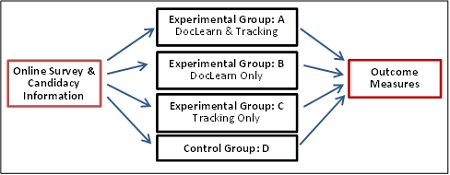
Excellent researchers
The SORTI team has been awarded a 5-year ARC Discovery Grant: Excellent researchers: Using learner profiles to enhance research learner metacognition, well-being, satisfaction and successful completion.
ARC Discovery Project (DP150102088)
The project team
Professor Allyson Holbrook
Professor
School of Education
- Allyson.Holbrook@newcastle.edu.au
- (02) 4921 5945

Sid Bourke
Emeritus Professor Terry Lovat
Emeritus Professor
College of Human and Social Futures
- Terry.Lovat@newcastle.edu.au
- (02) 4921 6288
Aims and significance
Future research lies in the hands of our current research candidates Enabling this group to reach their full potential as learners is of paramount importance to that future. However, it is estimated from Australian Bureau of Statistics data, that at least one third of the 60,000 academically talented, hopeful individuals enrolled in research degrees in Australia in recent years will not complete their course. Added to this is the ongoing pressure from Government, Institutional managers and candidates to facilitate successful and timely completion. While a wide range of programs have been put in place to assist candidates in Australia and overseas, especially early in candidature when it could be expected that maximum benefit would be gained throughout candidature, currently, institutions do not have information concerning individual differences that would enable more direct assistance to be offered and implemented.
The purpose of this research is to extend the range of support available to research candidates to include more specific reference to individual metacognitive factors as potential contributory concerns in managing successful candidature and timely completion. Previous research by the team into individual differences in the metacognitive attributes of PhD candidates (see Metacognition Study and Publications- Research into PhD Examination) has provided a firm research base for the development of an intervention that is able to inform research candidate learning.
Working from the basis of individual student awareness of their unique learning profile, this project asks: Do interventions based on individual candidate learning profiles positively influence outcomes: affective (well-being, satisfaction), and achievement (progress, time to completion and, where appropriate, examiner recommendation as a measure of thesis quality)?
Research Questions
- How important are learning profiles for candidates' affective and achievement outcomes?
- Does an early intervention (DocLearn) targeting candidate individual learning profiles assist candidates in identifying areas that need attention and improve outcomes?
- Does regular tracking of the individual students' learning journey improve outcomes?
- Do the results of each intervention differ according to demographics; equity group membership, and discipline field?
- Do the results differ by entry level, nature of candidature and on/off campus enrollment?
- What is the relative importance of all of these for each outcome variable: well-being, satisfaction, progress, time to completion and thesis quality in research higher degrees?
The research

Phase 1: Online survey and initial collection of information: demographic variables such as age, gender, discipline, equity measures plus Expectations, Satisfaction, Well being cognitive, affective and dispositional measures
Phase 2: The metacognitive profiles of the three experimental and the control group will enable comparison of measures to test the interventions over candidature.
Phase 3: Online Survey plus progress and completion data.
The University of Newcastle acknowledges the traditional custodians of the lands within our footprint areas: Awabakal, Darkinjung, Biripai, Worimi, Wonnarua, and Eora Nations. We also pay respect to the wisdom of our Elders past and present.






